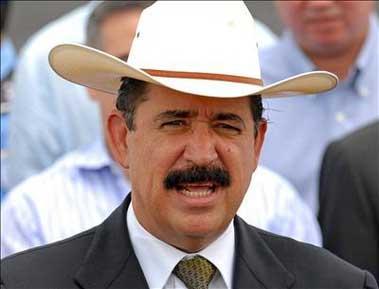
In defense of its democracy, against the interference of the United States and in rejection of a crude, backwards oligarchy, the Honduran people showed the world last Sunday that they will surmount every obstacle necessary to gain respect for their dignity and the right to self-determination. Washington remained stunned by the heroism of the people, but with a club in hand, not yielding a centimeter, in its customary arrogance. The Honduran oligarchy is attempting to minimize defeat in the ballot boxes, which are now under the custody of military coup participants.
Even worse, a few puppet governments, like Panama, celebrated the farce staged in the Tegucigalpa coup by the U.S. State Department and its ambassador. Foreign Minister Juan C. Varela, returning from Honduras, felt confident that his ideological allies would succeed with their fraudulent election. The 15 newly appointed members of the National Council for Foreign Affairs of Panama have yet to decide on the demise of democracy in a Central American country.
The Honduran people have a clear and precise objective. We must summon a constituent body. The constitutional president, Manuel Zelaya – ousted by the government in June of this year and still taking refuge in the Brazilian Embassy in Tegucigalpa – could head that summons. All Hondurans have organized in unions, neighborhood groups, productions and associations to demand the formation of a constituent body.
Honduras has demonstrated its rejection of the coup and its architects. It demands democracy be respected and the usurpers leave. The call for elections by coup supporters was still-born. The insurgents are isolated internationally, even though they count on the backing of a White House that has lost all credibility, despite its Nobel Prize. Obama’s support means the usurpers of Tegucigalpa will continue to receive funding for their spurious operations; the Honduran military will remain under the protection of the Pentagon, and the diplomatic and intelligence network of Washington will put pressure on weaker countries to recognize the election of the leaders of the coup (Haiti, Israel, Marshall Islands?).
U.S. Secretary of State Hillary Clinton named the new style of foreign policy “smart power.” According to the hard-wiring of the U.S. government’s structure, times of alternating soft power (respect for democracy, human rights and self-determination) and hard power (economic, military intervention and targeted killings) must give way to this new model.
On one hand, the military arm of the U.S. conceived the coup against President Zelaya (from its base at Soto Cano) but, on the other, its diplomatic team seeks to “restore democracy” through voter fraud. The U.S. gained the support of Costa Rica, Panama, Peru and, apparently, the king of Spain. However, Mexico and Colombia, both U.S. allies, have been reluctant to join the parade. Conversely, Brazil and its allies in the region have denounced the farce and have chided Obama for disrespecting the intelligence of Latin Americans. The only option left is to convene a representative assembly to allow the people of Honduras to decide their future in a sovereign and democratic manner.

Leave a Reply
You must be logged in to post a comment.